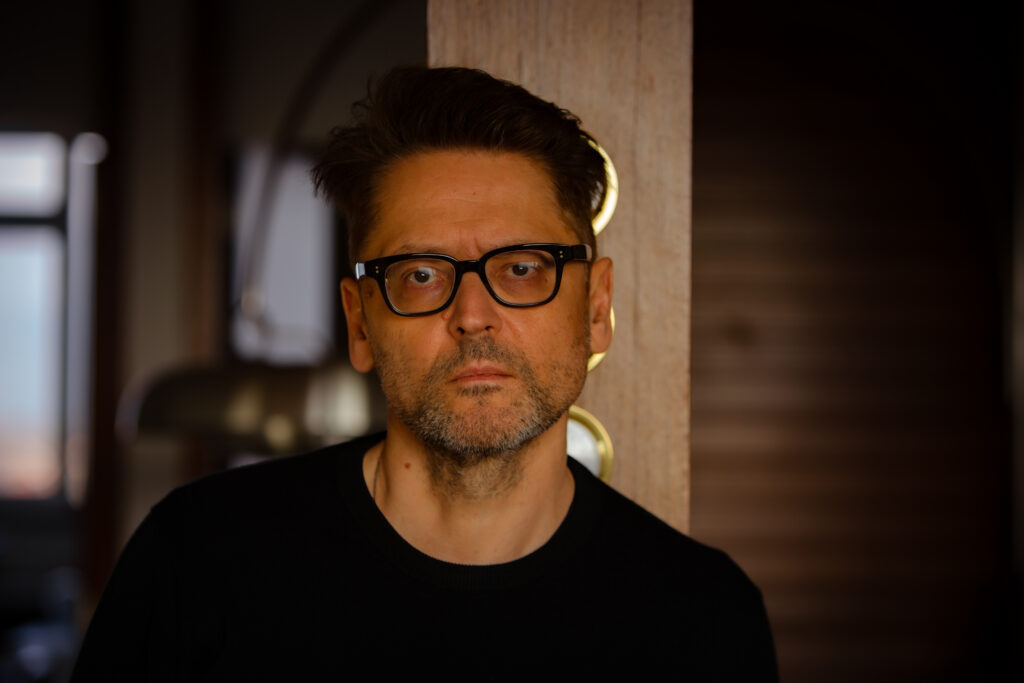A visit from the devil: Russian Gothic, by Aleksandr Skorobogatov, reviewed
The sinister Sergeant Bertrand arrives in a ‘provincial, mediocre’ Russian town to wreak havoc in the lives of a couple mourning the loss of their son
From magazine issue: 08 July 2023
Aleksandr Skorobogatov, translated by Ilona Yazhbin Chavasse
Old Street Publishing, pp. 128, £8
Like light from faraway stars, fiction from outside the Anglosphere may take decades to reach English-language readers. This sinister, indeed sulphurous, novella by a Belarus-born author was first published in Russian in 1991, and won major awards. Ilona Yazhbin Chavasse’s English translation, as creepily compelling as the book deserves, appears long after the contemporary hook that Aleksandr Skorobogatov embeds in his tale has lost its topicality. Recent events, however, make this fable of obsession, madness and violence timelier than ever. It almost vindicates a belief in Russian history and literature as an epic recycling of eternal themes.
Recent events, however, make this fable of obsession, madness and violence timelier than ever
In a dismal Russian town lives Nikolai, a drifter and drinker on a meagre government pension. His wife, Vera, is a fêted actress at the local theatre. Five years earlier, the couple lost their small son. In his drunken, grief-stricken despair, broken-down Nikolai begins to receive visits from the handsome, confident ‘Sergeant Bertrand’. This fine fellow, ‘radiant, gleaming with health’, seems determined to seduce the willing Vera, or so Nikolai assumes. The flirtatious gentleman caller uses fragrant colognes: ‘The stench made Nikolai’s stomach heave.’ But Bertrand also brings an acrid, burning smell along with him. We have been warned.

Bertrand’s debonair virility drives ‘talentless, dull, insignificant’ Nikolai into paroxysms of jealous, paranoiac rage. He terrorises the blameless Vera, driving her from her ‘shameless job’ at the theatre, first by emotional blackmail, then vicious physical attacks perpetrated during his alcoholic rages. Meanwhile, the super-misogynist Bertrand — a sort of Russian Andrew Tate, with fancier touches of Nietzsche — pops round to insist that every man is ‘born with power. You’ve got to use that power, you’ve got to rule!’ ‘People gravitate towards strength,’ he preaches, and will ‘forgive the strong for using their teeth to show dominance and superiority’. Thus ‘a strong and healthy person should never feel pity’. Nikolai learns the Bertrand doctrine all too well. Accused and abused, the angelic Vera nonetheless stays loyal to her increasingly sick and delirious spouse — even when his vengeful fury lands him in the asylum’s alcoholism ward.
Admirers of Gogol, Dostoevsky and other literary conjurers of infernal powers, both psychological and social, will find plenty to recognise
With its non-specific setting, fantasy-prone protagonist, saintly heroine and satanic interloper, Russian Gothic can resemble a brief, accomplished reprise of key motifs from classic Russian fiction. (Incidentally, the translation’s over-explicit title is not Skorobogatov’s: he just called the story Sergeant Bertrand.) Admirers of Gogol, Dostoevsky and other literary conjurers of infernal powers, both psychological and social, will find plenty to recognise. Scenes of horror and panic blend with near-farce in the ‘provincial, mediocre, grey town’. Its squalid office-holders embody the smug, stupid corruption that Russian writers like to dub poshlost. They almost provide an excuse for Nikolai’s frenzied paranoia as it builds towards a foregone, but still hideous, conclusion.
At one point, this undated backdrop acquires some fixed coordinates. Nikolai’s pension derives from his military service: ‘The government is paying us damages for injuries we sustained.’ Specifically, it compensates veterans ‘for the blood we poured like fertiliser on to the Afghan soil’. The anti-hero’s demonic possession, and the heroine’s long-suffering virtue, may unfold against a broad canvas of Russian writing, with its recurrent spiritual dramas, yet Nikolai also suffers alcohol-enhanced PTSD, bequeathed by the imperial dabacles of the moribund Soviet state. His hallucinations have a history. And this English version arrives just as Putin’s war on Ukraine creates thousands more traumatised Nikolais. In his sermon from hell, Bertrand refers to life as ‘a never-ending battle in a never-ending war’. If so, then the Kremlin now hosts the most faithful devil’s disciple of them all.
WRITTEN BY
Boyd Tonkin